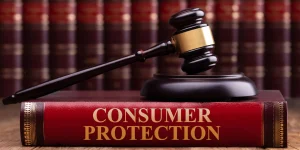When your phone lights up with calls about an old bill, it is stressful. When those calls keep coming, feel aggressive, and are backed by the threat of legal action, it stops feeling like simple billing and starts feeling like harassment. Many consumers use the phrase Bottom Line Collection Debt Collector when they talk about a company that is chasing them for money and will not seem to back off.
You might search online and find confusing information, scattered addresses, and mixed this company reviews. That confusion can make you feel even more trapped. Are they real, can they sue, what happens if you do not pay today, and do you have any rights at all
The answer is that you do have rights. Even if a creditor, nursing facility, or medical provider has sent your account to a company that acts as a Bottom Line Collection Debt Collector, federal and state law still limit what they are allowed to do. You can demand proof, control when and where they contact you, protect your credit, and in many cases fight back and even recover money if they have crossed the line into illegal behavior.
This guide explains who this kind of collector is, how harassment usually looks, what your legal protections are, and what steps you can take today to protect yourself and your family.
Understanding the company behind the calls
Public business records show a firm called Bottom Line Collections LLC registered in New York, with a headquarters at Seven Nancy Court Suite Five A in Wappingers Falls New York and a related address at Sixty Four Secor Lane in Hopewell Junction New York.
The firm also operates under the brand Bottomline Collections and Consulting and describes itself as a revenue cycle management and billing company for skilled nursing facilities. That means it helps health care providers and long term care facilities manage billing, collections, and reimbursement.
From a consumer point of view, this is still a debt collection business. When a nursing facility or medical provider has trouble collecting from a patient or resident, it may send the account to a Bottom Line Collection Debt Collector to recover the balance. That collector may then call, send letters, and in some cases report accounts to credit bureaus or work with a law firm.
Phone contact information tied to this business includes a New York office number at 845-447-1542, and consumer protection firms report that callers using this name sometimes appear from numbers such as nine zero nine three six three four seven one two and two five six five three five six zero one six.
The exact structure can vary, and there may be more than one company with a similar name, but the pattern is the same. A provider sends a debt to a billing and collection company, and that company becomes the Bottom Line Collection Debt Collector you are now dealing with.
Why a Bottom Line Collection Debt Collector is contacting you

If you receive a call or letter connected with this company, it usually means a creditor believes you owe money on an account that is now late. This often involves
- 👉 Unpaid skilled nursing facility charges
- 👉 Past due medical or therapy bills
- 👉 Care center room and board balances
- 👉 Other health care related accounts that were never fully paid
Sometimes the first time you see the name is on a mailed statement or demand letter. Other times you hear it on a voice message. In either case, the Bottom Line Collection Debt Collector is acting on behalf of the provider or in its own name if the debt has been assigned.
You may honestly owe some money. You may dispute the full amount. You may not recognize the account at all. In every one of those cases you still have the right to clear information before you agree to anything, and you have the right to be free from abusive or deceptive contact, no matter how frustrated the company or its staff may be.
How harassment from a collector usually looks
Not all collection activity is illegal. A single polite reminder call or a clear letter explaining a balance is not harassment. Harassment begins when the conduct would naturally upset or overwhelm an ordinary person.
Common patterns people describe when dealing with a Bottom Line Collection Debt Collector include
- ➡️ Frequent calls in a single day
- ➡️ Calls on many days in a row even after you have spoken with someone
- ➡️ Calls very early in the morning or late in the evening
- ➡️ Refusal to listen when you try to explain your situation
- ➡️ Pressure to make an immediate payment over the phone
- ➡️ Suggestions that you will be dragged into court right away if you do not pay today
In some Bottom Line Collection Reviews, consumers also describe calls to family members or to a place of employment, sometimes after they have already asked that the company not contact them there. Others say they never receive a clear explanation of the charges, only repeated demands for payment.
When several of these behaviors are happening together, it is reasonable to view the conduct as harassment and to take steps to protect yourself using the laws that exist to prevent abusive collection.
Laws that protect you from abusive collection tactics

Two main federal laws protect you when you are dealing with a Bottom Line Collection Debt Collector or any similar company that is collecting consumer debts.
The Fair Debt Collection Practices Act governs how third party debt collectors may behave when they collect personal debts. It covers medical bills, nursing facility balances, credit cards, and other consumer accounts that are owed to a creditor but are being collected by a separate company. Under this law collectors may not
- 🚨 Call before eight in the morning or after nine at night in your local time
- 🚨 Use obscene or abusive language
- 🚨 Threaten arrest or criminal action for failing to pay a civil debt
- 🚨 Misrepresent the amount you owe or who owns the account
- 🚨 Talk about your debt with family, friends, or coworkers except in very narrow ways
- 🚨 Call your workplace if you tell them that your employer does not allow these calls
The law also gives you the right to receive a written notice that explains the amount of the debt, the name of the creditor, and your right to dispute the debt in writing. If you dispute in writing within the allowed time, collection activity should pause until validation is sent.
The Fair Credit Reporting Act protects your credit files. If a Bottom Line Collection Debt Collector reports a collection account in your name, the information must be accurate and complete. You have the right to obtain your credit reports, dispute entries you believe are wrong, and force the credit bureaus to investigate and correct errors.
Together, these laws give you real tools to stop harassment, clean up false reporting, and in some cases recover money for the damage that abusive practices cause.
Verifying that the caller is genuine
Because the name of this company is somewhat generic, scammers can easily pretend to be from it. Before you send any money or reveal personal details, you should confirm that you are truly dealing with a genuine Bottom Line Collection Debt Collector and not an impostor.
When someone calls you and uses this name, calmly ask for
- ✅ The full legal name of the company
- ✅ The street address of its main office
- ✅ A direct company phone number you can call back
- ✅ The name of the creditor connected with your account
- ✅ Your account or reference number
Write this information down while you are on the call. Then tell the caller that you want everything in writing and end the conversation. After that, look up the firm through independent sources and confirm that the address and Bottom Line Collection Phone Number match public listings for Bottom Line Collections in New York or for related consulting operations.
If the details do not match, or if the caller refuses to provide basic information, treat the call as suspicious. Scammers depend on panic. When you slow things down, request a letter, and verify the Bottom Line Collection Phone Number on your own, you take away their advantage and help protect yourself from fraud.
How to document every interaction

If harassment is happening, documentation is your best friend. Without a written record, calls and conversations blur together. With organized notes and copies of messages, you can show a clear pattern of behavior by a Bottom Line Collection Debt Collector and support any legal claims you may later bring.
Create a simple log and record for each call or message
- ➜ The date
- ➜ The time
- ➜ The number that appeared on your phone
- ➜ The name the caller gave
- ➜ A summary of what was said
- ➜ Any threats, abusive language, or strange statements
Save every letter, statement, and envelope. Take screenshots of texts and emails. Save voice messages if your device allows it. If your state law allows recording with notice, you may consider recording calls after telling the caller that you are doing so.
This record will be essential if you decide to report the conduct to regulators, if you contest negative Bottom Line Collection Reviews with facts, or if you work with a consumer rights lawyer to bring a claim under the FDCPA or related laws.
Requesting validation of the debt
You are never required to take a collector at its word when it claims you owe money. The law gives you the right to ask for proof. When you receive a first letter or call, watch for the part of the notice that describes your right to dispute the debt in writing within a set time.
If you did not receive a timely written notice, or if the letter is unclear, send your own written dispute to the address provided by the Bottom Line Collection Debt Collector. In that letter
- ✔️ State that you dispute the debt or a portion of it
- ✔️ Request full validation of the account
- ✔️ Ask for the name and address of the original creditor
- ✔️ Ask for an itemized breakdown of the balance including interest and fees
Mail this letter in a way that provides proof of delivery and keep a copy for your files. Once the collector receives your dispute, it should suspend active collection until it has sent validation. If it continues to call daily, demand payment, or threaten lawsuits without responding to your dispute, that conduct may violate the FDCPA and strengthen your case.
➡️ Protect Yourself from McIntyre Group Debt Collection Tactics
Setting limits on calls and other contact

Even when a debt is real, you do not have to accept constant calls that interfere with work and family life. You can place reasonable limits on when and how a Bottom Line Collection Debt Collector may contact you.
Tell the company
- ➤ That your employer does not allow personal calls at work, if that is true
- ➤ That certain hours are not acceptable due to family or health reasons
- ➤ That you prefer to receive communication in writing rather than by phone
Then send a short letter that repeats these limits, identifies your account, and refers to your request. Keep a copy with your call log. If the collector continues to call your workplace or contact you at times you have clearly marked as off limits, those facts can support a harassment claim.
In some situations, you may choose to send a broader letter that instructs a third party collector to stop contacting you at all, except for narrow reasons permitted by law. That is a powerful step and can have legal consequences, so it is usually wise to speak with a lawyer before you send such a letter to this company.
Protecting your credit reports
A collection account tied to a medical or care facility bill can have serious effects on your credit. Public data shows that Bottom Line Collections is sometimes listed in business directories for billing and bookkeeping services and may be associated with health care accounts, which often end up on credit reports when unpaid.
Even if you resolve collection calls, a negative entry might remain on your reports. That is why it is important to obtain your credit reports from the major bureaus and check for entries connected to this company or to the original provider.
If you see a collection account that is inaccurate, outdated, or reflects the wrong balance or dates, you can dispute it under the Fair Credit Reporting Act. In your dispute to each bureau, identify the account, explain what is wrong, and attach copies of any supporting documents. If the furnisher of information cannot verify the entry, the bureau must correct or remove it.
Cleaning up reporting is especially important if you see negative Bottom Line Collection Reviews online that mention credit damage. Your goal is not just to stop current calls but also to limit long term harm to your ability to rent, borrow, or pass background checks.
How Consumer Rights Law Firm PLLC can help you

Facing a Bottom Line Collection Debt Collector on your own is stressful. The calls feel personal, the letters use legal language, and you may worry that a lawsuit or garnishment is around the corner. You do not have to do this alone.
Consumer Rights Law Firm PLLC focuses on helping people who are dealing with debt collection harassment and unfair credit reporting. The firm understands the tactics used by companies like this and can step in on your behalf so that future contact must go through your lawyer instead of directly to you.
Here is how to reach the firm
Consumer Rights Law Firm PLLC
📌 133 Main Street Second Floor
North Andover MA 01845
☎️ Phone 877 700 5790
📩 Email help@consumerlawfirmcenter.com
👤 Visit :Better Business Profile
When you contact Consumer Rights Law Firm PLLC, the team can
- ➡️ Review your call log, letters, and credit reports
- ➡️Explain your rights under the FDCPA and FCRA in clear language
- ➡️ Send demand letters telling the Bottom Line Collection Debt Collector to stop unlawful conduct
- ➡️ Require full documentation of the alleged debt
- ➡️ Negotiate fair settlements when the debt is valid and you wish to resolve it
- ➡️ Bring lawsuits to recover damages if your rights have been violated
In many cases, federal law allows a successful consumer to recover attorney fees from the collector, which can make it realistic to fight back even when money is tight.
Success Stories
“What an amazing experience I had with Consumer Rights Law firm. I kept getting constant calls from a debt collector who was asking for someone I didn’t know. After explaining over and over I was not the person they were looking for, The calls still continued, it became frustrating and very annoying. I came across this firm and just called to talk to someone to see how I could get the calls to stop. I spoke to a gentleman that was very professional and very helpful. Not only did they get the calls to stop immediately, they were able to put some money in my pocket as well. Here’s the best thing, it cost me nothing for them to help me. They come highly recommended. Thank you Consumer Rights. Their expertise in negotiating settlements with debt collectors was invaluable.
“I had the pleasure of dealing with Consumer Rights Law Firm PLLC on 2 different occasions. The staff were very courteous and helpful, and they were familiar with the Collection Agencies in question. The harassment calls stopped, and I was even compensated. As a collection law firm, they provided exceptional legal assistance and ensured my rights were protected. I would recommend this company to anyone going through this type of harassment. A very satisfied customer.”
“I would highly recommend the Consumer Rights Law Firm to anybody that has been harassed! They were very professional and straightforward about my rights.”
Check out a links below for more information:
Massachusetts Attorney General
FAQs about this collector
What is the Bottom Line Collection Debt Collector?
It is a billing and revenue cycle company that also works as a collector for nursing facilities and medical providers, pursuing unpaid patient or resident accounts.
Where is the company located?
Public records list headquarters at Seven Nancy Court Suite Five A in Wappingers Falls New York and a related address in Hopewell Junction New York.
What is the main Bottom Line Collection Phone Number❓
Business listings and the company site show an office line around 845-447-1542 as a primary contact number.
Are all calls from this firm legitimate❓
Not always. Scammers can copy the name. Always verify the Bottom Line Collection Phone Number, address, and written details before paying.
What should I do if I feel harassed❓
Write down every call, save letters and messages, and consider speaking with Consumer Rights Law Firm PLLC about possible FDCPA violations.
Can this company sue me❓
If it owns the debt or works closely with a creditor and local law allows, a lawsuit is possible. Never ignore court papers if you receive them.
How can I challenge a bill I believe is wrong❓
Send a written dispute requesting validation, ask for an itemized balance, and demand proof that the debt is yours and correctly calculated.
Can a collector talk to my family about my debt❓
In most cases no. Collectors may only seek limited location information and cannot reveal full details of your account to family or coworkers.
What can I do about negative Bottom Line Collection Reviews I see online❓
Use them as a warning to be cautious, but rely on your own records, disputes, and legal advice to address your specific situation.
When should I call Consumer Rights Law Firm PLLC ❓
Call when contact from a Bottom Line Collection Debt Collector feels relentless, confusing, or abusive, or when you receive legal papers and do not know how to respond.
By understanding who you are dealing with, insisting on written proof, documenting every step, and using your rights under federal law, you can move from fear to control. And with Consumer Rights Law Firm PLLC in your corner, you do not have to face Bottom Line Collections style harassment alone.







